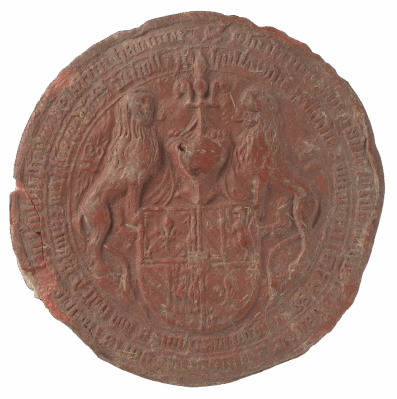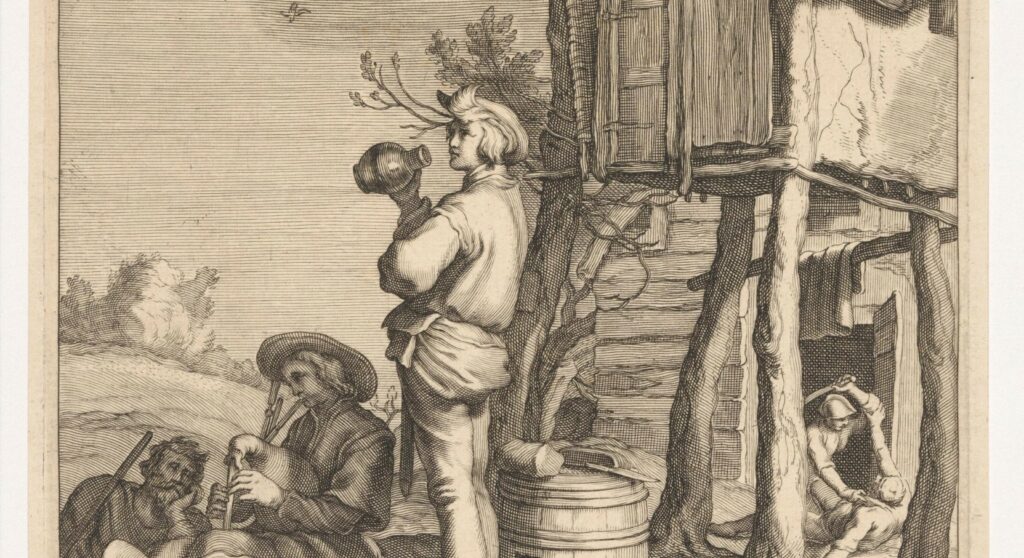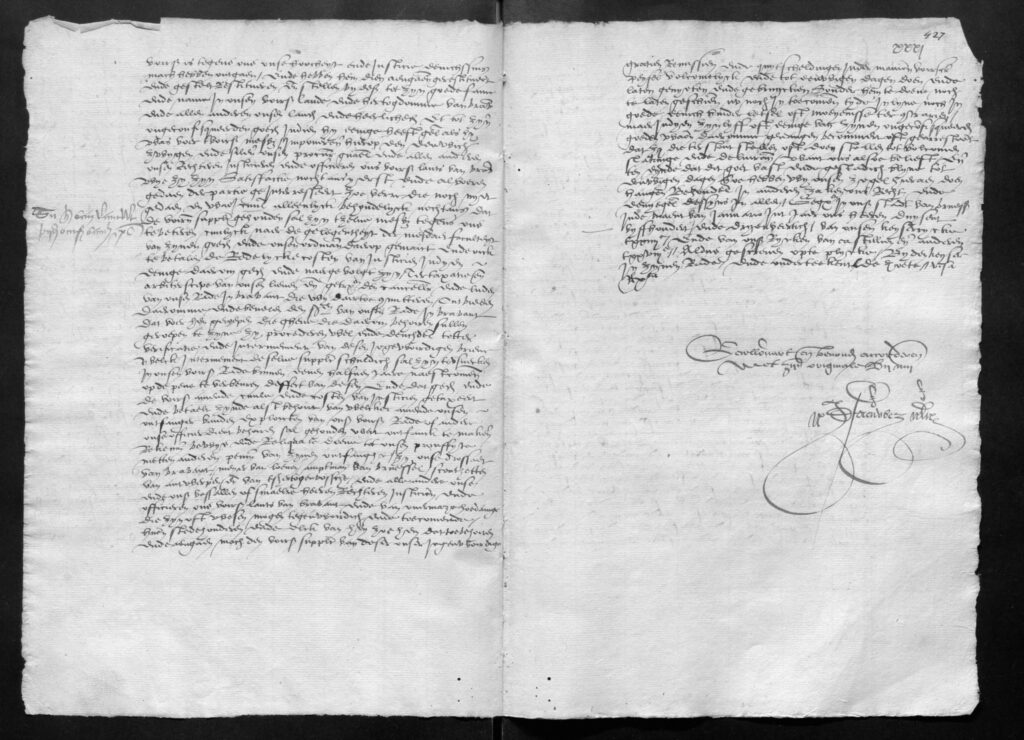François van den Bogaerden, a young man from Mechelen, did have to escape from prison when he saw his chance. He was unjustly imprisoned, he thought, and on the upside, the court officer threatened to put him on the rack. François had been imprisoned in Lier – he had been caught within the jurisdiction of the Nete city – but the acts for which he was being prosecuted had taken place several dozen kilometres further south.
On the morning of St Michael’s Day (29 September) of 1542, François and some soldiers had entered Villers Abbey. François stressed in his request for grace that he actually had no part in it. He had happened to find himself in the company of some soldiers from the garrison of Yvois. Those soldiers had broken into the abbey gate with a bench. He had then gone in with them, but had done nothing else wrong. He had not been rowdy, had not broken anything. Others had taken food from the abbot’s table and devoured it, but he had only eaten what was handed to him.
François was prosecuted by the provost-general, implying that he was a ‘vagabond’. The provost-general had threatened ‘torture’ and had already put François on the rack for appearances. From then on, François was in good spirits and when the opportunity arose, he escaped from prison. He asked for a pardon for both offences, the burglary and the breakout, which he obtained in January 1544.
On the morning of St Michael’s Day (29 September) of 1542, François and some soldiers had entered Villers Abbey. François stressed in his request for grace that he actually had no part in it. He had happened to find himself in the company of some soldiers from the garrison of Yvois. Those soldiers had broken into the abbey gate with a bench. He had then gone in with them, but had done nothing else wrong. He had not been rowdy, had not broken anything. Others had taken food from the abbot’s table and devoured it, but he had only eaten what was handed to him.
François was prosecuted by the provost-general, implying that he was a ‘vagabond’. The provost-general had threatened ‘torture’ and had already put François on the rack for appearances. From then on, François was in good spirits and when the opportunity arose, he escaped from prison. He asked for a pardon for both offences, the burglary and the breakout, which he obtained in January 1544.


